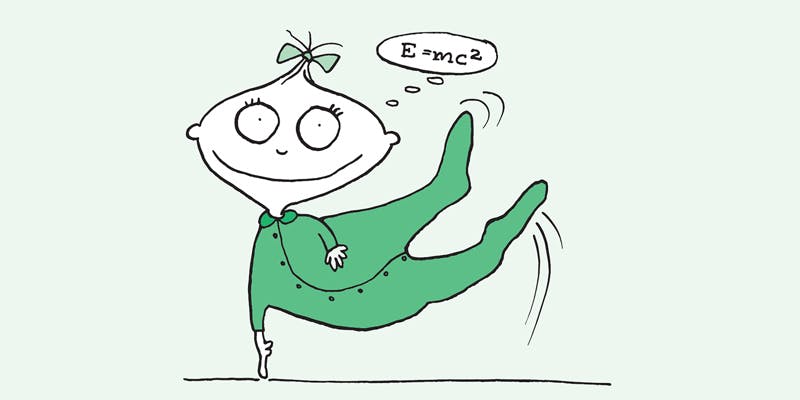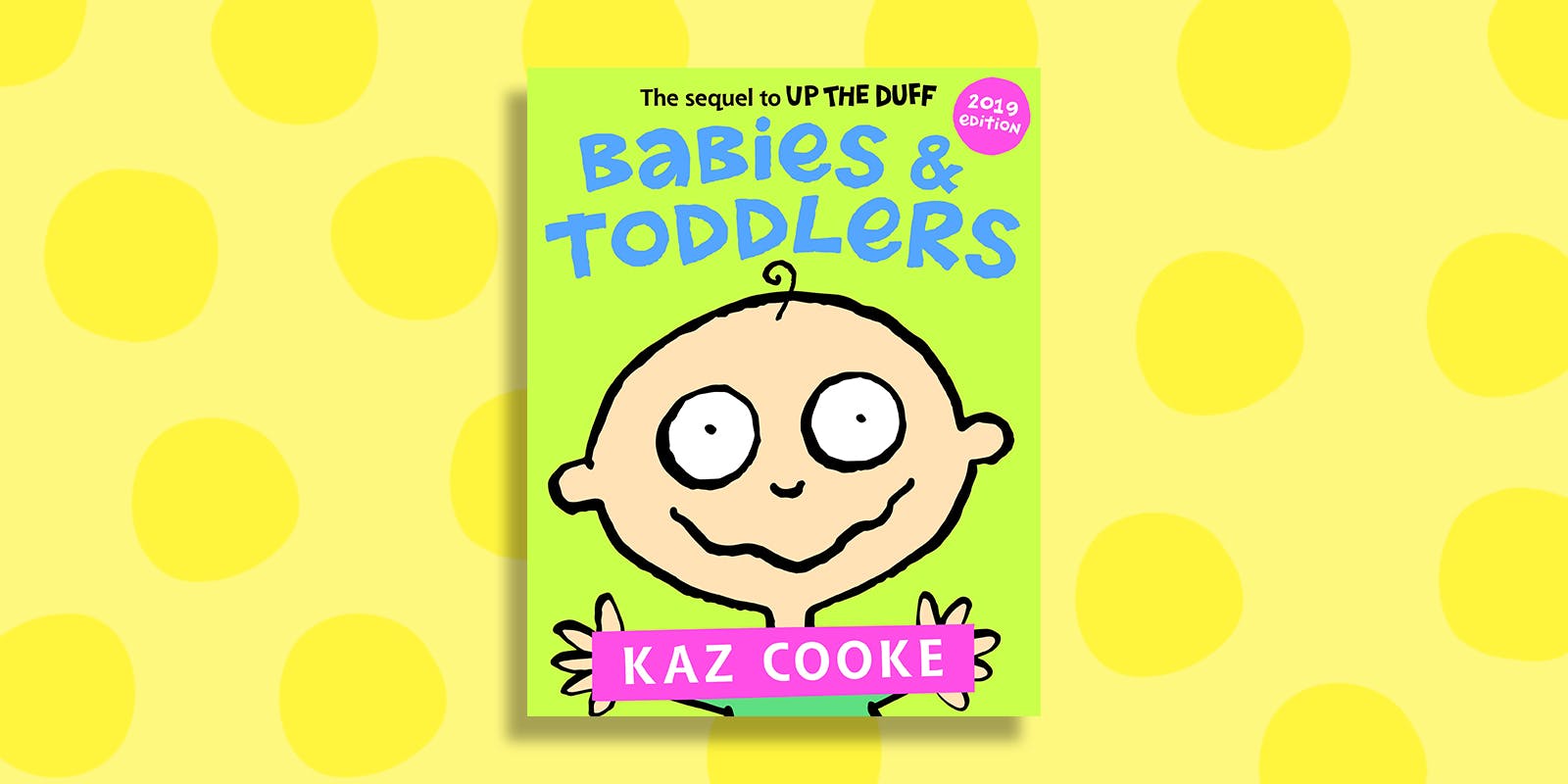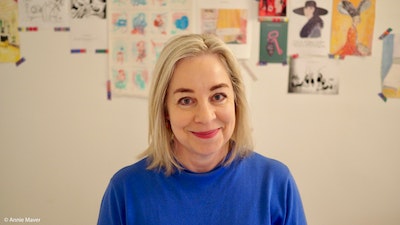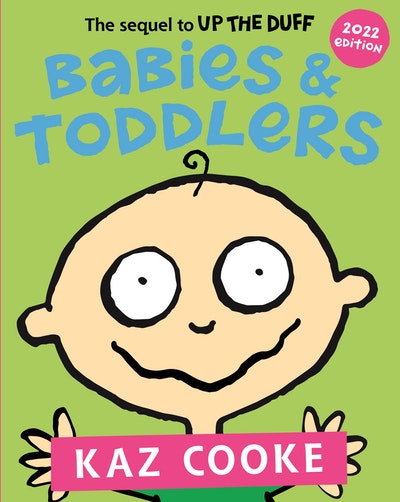In Babies & Toddlers, Kaz Cooke helps parents understand a child’s physical, emotional and communication development milestones, from six-week-old babies through to three-year-olds. Including hints on fun ways to encourage development, and when (or whether) to see a doctor, Babies & Toddlers has it covered.
All kids learn social and physical skills by interacting with their parents, siblings or carers. Much of what seems like straightforward development, such as being able to grasp a toy, helps kids learn other skills as well, such as hand-eye coordination. Every time your baby topples over they are learning what not to do in order to stay upright. So ‘mistakes’ or everyday events and movements are very important for kids learning how to use and enjoy their bodies.
Your baby could develop at about the pace outlined in the lists that follow or get to ‘milestones’ a bit sooner, or later. This doesn’t mean they’re ‘advanced’ or ‘backward’. It means they’re in the normal range. Some babies miss ‘stages’ altogether: there are plenty of kids who turn up their nose at crawling, one minute doing a funky bum-shuffle or that commando tummy crawling, and the next standing up and wobbling about.
How your child develops and which milestones are reached when depend on a complex interaction between their genes, their prior development and their environment: a kid in a sporty family of nine who live on a beach in Queensland might develop some skills more quickly and some more slowly than an only child in a family of oboe players who live where it snows most of the year and whose home is full of books.
Babies need to mature naturally to certain levels before they can acquire more skills. Giving lots of encouragement, praise and cuddles goes for every stage of your child’s life and development.
There are also ideas in this chapter on fun activities that help development. The point is for the child to enjoy them and then move on when they feel like it. You’re not ‘training’ them. You’re just playing, and that’s how they learn.
For premmie babies it’s important to adjust the milestones range to the age they’d be if they’d been born on their due date – that is, if your 3-month-old bub was one month premature, check out the development range for a 2-month-old baby in the list below. In some cases their abilities could be a little curtailed by the fact they have so much catching up to do. See a paediatrician about when they’ll catch up.
Beware of articles and forum comments on parenting blogs and websites: the advice could be helpful or it might be outdated, incorrect, judgemental and shouty, or just plain bonkers. Just because it’s on a fancy website or said by a celebrity or someone who really believes what they’re saying doesn’t make it right.
Baby development milestones
These milestone times are averages, and will vary among babies – even babies in the same family.
NEWBORN BABY (FIRST 6 WEEKS)
Physical Development
Your newborn:
- Knows its mother’s voice as soon as it’s born
- responds to a higher-pitched, baby-talk voice
- sees faces that are close up – about the distance between a mother’s and a baby’s face when breastfeeding
- makes random and jerky movements
- needs their neck supported
- will stay in the position you put them in to sleep
- sees the world first in strong contrasts of light and dark
- will look towards a light if they can’t focus on an object
- can smell breastmilk and see the darker areola on the breast, and will turn their head and home in on it
- loves skin-to-skin-in-the-nuddy contact
- is just starting to touch, smell, taste, hear their new world
- has a curly-up body and hands – they’ll unfurl in their own time
- tends to need quiet, especially if they’re preterm, while their hearing develops to cope with louder sounds.
Emotional & mental development
Your newborn:
- is learning to love you
- can’t quite get their brain to tell the rest of their body what to do
- is easily startled and needs a soothing environment
- is learning to trust you and know ‘their people’ (family and carers)
- likes relaxing music (think classical or reggae, not thrash metal)
- likes listening to baby-talk with exaggerated vowels
- can recognise the face of their mother, father and other carers if they have a lot of contact, and prefers expressive faces, but not wildly changing ones
- learns how to fit expressions to feelings and mimic faces
- can recognise their mother’s voice and then their dad’s
- has their own feelings
- needs to feel your loving touch and kindness
- is also learning eating, digesting, sleeping, breathing, moving, seeing, hearing and other stuff
- has dreams – it’s now believed that babies probably dream even before they leave the womb.

Communication development
Your newborn:
- communicates mainly by crying
- can also let you know how they are feeling by being suddenly still and wary, or shaping themselves to your body, or relaxing with skin-to-skin contact and breastfeeding; or even by staring hard when trying to understand or make a connection with you
- still has the equivalent of an on-off switch from comfy/happy to hungry or wet/crying.
What can you do to help a developing newborn baby?
Try lots of baby-talk, lots of cuddling, songs and baby massage. Massage is believed to be calming, especially in their first 3 months, and also helps a baby become aware of their body and feelings of touch and movement. Baby massage is good.
Don’t think you have to do anything special to entertain your newborn: sitting still in a chair having a cuddle and a chat for a while before a sleep is good for them and doesn’t cost a cent. If you’re out walking the pram, don’t spend all your time on your mobile: talk to your baby – they love it!
When you’re talking to your baby, pause for responses: pretend they’ve answered. This is more entertaining for you, and the baby has time to develop reactions, even facial expressions, that will show you they’re trying to keep up and communicate. Bubs can be very good at compensating when they can’t hear, so for your own peace of mind ask your doctor or your child & family health nurse to do or arrange a hearing test. Sadly, these are not done automatically for each child.
If you have had a grumpy or stressful day, try to start afresh the next hour, after a nap, or at least the next day so your baby is reassured.
Let them spend time unwrapped, with little spurts of ‘tummy time’ so they learn to hold their head up independently so they can kick and wave, even if they’re not quite sure what they’re doing. You can start at one to two minutes a few times a day, and then build up to ten or fifteen minutes a time in a few weeks. There will be face planting, so make it a soft surface. See ‘Tummy time for newborns’ in Chapter 1, Your New Baby, for instructions.
See Babies & Toddlers for all the next physical, emotional and communication development milestones, from six-weeks-old babies through to 3-year-olds, including hints on fun ways to encourage development, and when (or whether) to see a doctor.














